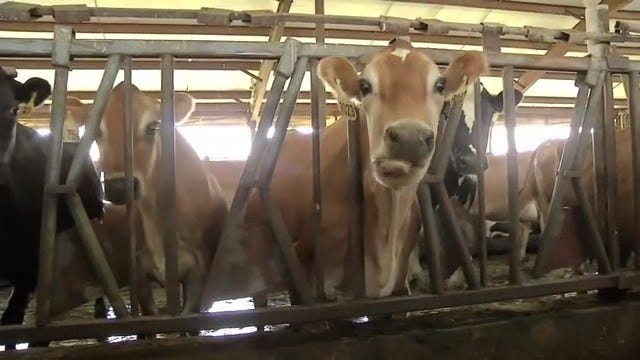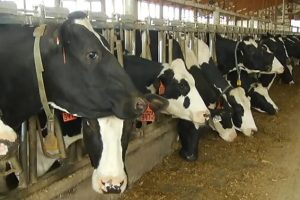
Bousquet, who is the AFAN director of livestock development, grew up on a diversified farming operation near South Sioux City, where his family milked cows, raised cow calf pairs, farmed and grew corn, soybeans and alfalfa, as well as operated an over-the-road trucking company. Bousquet said he might be a little biased toward dairy.
“This sector has the most opportunity for growth in all of livestock in my opinion,” Bousquet said.
AFAN, which is the Alliance for the Future of Agriculture in Nebraska, serves as a resource for farmers and ranchers who wish to expand or move their livestock operations in Nebraska. Bousquet also works throughout the state, telling agriculture’s story at speaking engagements and for education projects.
Bousquet was one of the featured speakers a week ago at the annual Northeast Nebraska Ag Banquet at the Madison County Fairgrounds in Madison.
He discussed growth opportunities for beef, pork poultry and dairy operations, although some of the areas like pork expansion require expensive facilities that make cash flows difficult, he said.
One of the reasons Bousquet sees opportunity for dairies is because of demand for milk, including a dairy processing plant in Norfolk.
Dairy has been a growth opportunity in Nebraska for years. One of the things that occurs is before milk processing plants come to the state, they want to make sure they will have an ample supply of milk, Bousquet said.
Dairy production in Nebraska has followed the national trend of fewer dairies with more cows for decades.
Nebraska produces more than 4 million pounds of milk daily. Right now, Milk Specialties in Norfolk uses 600,000 pounds of milk every day and would like to increase capacity to use about 2 million pounds each day, Bousquet said.
That expansion creates more competition for milk for Nebraska producers, so there’s opportunity for more milk production.
AFAN also is working with four other dairy processing plants that are considering locating in Nebraska. If the state can land at least a few of those, there will be even more opportunities for milk production.
As he travels around, Bousquet said he hears from others who are appreciative of the support given to dairy and livestock in Nebraska. That doesn’t happen every place.
“There’s a lot of places in this country where people don’t support agriculture,” Bousquet said. “Take a trip to California or Oregon or Washington and you’ll see it firsthand.”
Bousquet recently saw a dairy farmer in California who was having difficulty getting enough water for his cows to drink. There are also more regulations there and a moratorium on ag wells, he said.
“Things are getting much more difficult not just in the dairy world, but for the livestock producer,” he said.























